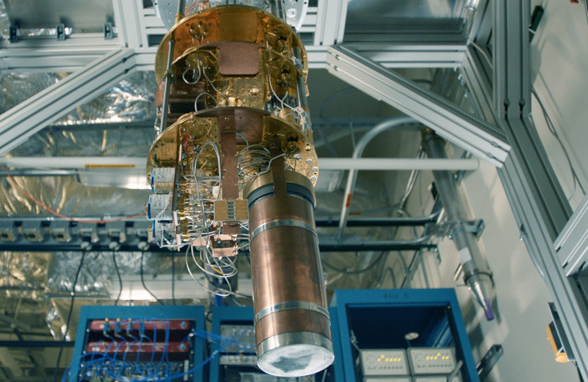Quantum computing isn’t going to revolutionize AI anytime soon, according to a panel of experts in both fields.
Different worlds: Yoshua Bengio, one of the fathers of deep learning, joined quantum computing experts from IBM and MIT for a panel discussion yesterday. Participants included Peter Shor, the man behind the most famous quantum algorithm. Bengio said he was keen to explore new computer designs, and he peppered his co-panelists with questions about what a quantum computer might be capable of.
Quantum leaps: The panels quantum experts explained that while quantum computers are scaling up, it will be a while—we’re talking years here—before they could do any useful machine learning, partly because a lot of extra qubits will be needed to do the necessary error corrections. To complicate things further, it isn’t very clear what, exactly, quantum computers will be able to do better than their classical counterparts. But both Aram Harrow of MIT and IBM’s Kristan Temme said that early research on quantum machine learning is under way.
Big picture: The event was organized by MIT and IBM, which are collaborating on a research effort to explore innovations in materials, computer architecture, and physics that might help bring about the next big breakthroughs in AI. This project is worthwhile because most of the innovation happening in AI today involves software algorithms, and signs of limitations in that progress are already emerging. New hardware might well offer the next leap—whether it be quantum or not.

